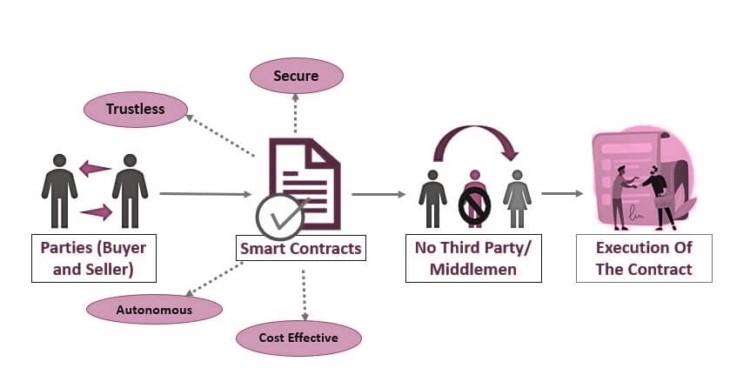Cryptocurrencies have become a major innovation in the constantly changing financial scene, changing our perceptions of money, investing, and online transactions. The first and most popular cryptocurrency, Bitcoin, is at the center of this revolution. This article defines and provides insights into the ideas influencing this digital frontier as it examines Bitcoin and other significant terms in the cryptocurrency space.
Bitcoin: The Pioneer of Cryptocurrency
With no central bank or single administrator, Bitcoin is a decentralized digital money that can be transferred between users on the peer-to-peer bitcoin network without the involvement of middlemen. Under the pseudonym Satoshi Nakamoto, an unidentified person or group created Bitcoin, which was first described in a 2008 white paper called “Bitcoin: A Peer-to-Peer Electronic Cash System.” It runs on a distributed ledger technology known as blockchain, which logs every transaction made via a network of computers. The allure of Bitcoin is in its capacity to provide safe, transparent, and quick transactions without the need for centralized oversight, which makes it a revolutionary step in the direction of an open financial system.
Blockchain: The Backbone of Cryptocurrencies
Blockchain is a distributed ledger or database that is shared by all of the network’s nodes. A blockchain acts as a digital database, storing data electronically. The principal use of blockchains is in cryptocurrency systems like Bitcoin, where they are essential for keeping a safe, decentralized record of transactions. A blockchain is innovative because it creates trust without requiring a reliable third party by ensuring the integrity and security of a data record.
Cryptocurrency: Digital or Virtual Currency
Due to its innovative use of cryptography to increase security, cryptocurrency stands apart as a digital or virtual currency. It avoids traditional financial intermediaries and functions independently of central banks, in contrast to traditional currencies. Blockchain technology, a decentralized ledger that logs every transaction via a network of computers, is the foundation of cryptocurrencies. This configuration gives the system its unique immutability—that is, once a transaction is logged, it cannot be changed or removed—as well as transparency and security. This innovation offers a more transparent, safe, and inclusive financial framework that has the potential to alter global financial systems in addition to changing the way we think about money.
Wallet: The Cryptocurrency Keeper
The term “wallet” describes a digital wallet that is used to send, receive, and store cryptocurrencies like Bitcoin. Wallets come in a variety of forms and offer varying degrees of protection and convenience. These include software wallets (desktop, web, and mobile), hardware wallets, and paper wallets.
Mining: The Process of Creating New Coins
The process of mining involves the release of new cryptocurrency currencies, transaction verification, and blockchain ledger addition. When it comes to Bitcoin, mining entails figuring out intricate mathematical riddles in order to find new blocks that are uploaded to the network.
Satoshi Nakamoto: The Mysterious Creator
The individual or group behind the creation of Bitcoin, the writing of the white paper, and the development and deployment of the initial reference implementation of Bitcoin go by the pseudonym Satoshi Nakamoto. It’s still unclear who Satoshi Nakamoto really is.
Decentralization: The Core Philosophy
The spreading of authority away from a central location is referred to as decentralization. It refers to a network’s dispersed operation among numerous computers as opposed to its centralized operation within a single server or collection of servers in the context of cryptocurrency.
Smart Contracts: Self-Executing Contracts
The conditions of the agreement between the buyer and seller are immediately incorporated into lines of code to create self-executing contracts known as smart contracts. The agreements and the code are spread via a decentralized, distributed blockchain network.
Token vs. Coin: Distinguishing Cryptocurrencies
- Coin Within the vast world of cryptocurrencies, tokens are a subset that is different from stand-alone coins. Tokens are digital assets that are present on pre-existing blockchain platforms, as opposed to coins, which function on their own blockchains. Because of this functionality, developers may make them more quickly and easily without having to start from zero when building a new blockchain. Tokens can stand for a wide range of resources, including digital art, ownership rights, and the ability to use particular features or services on a platform
- Token Within the vast world of cryptocurrencies, tokens are a subset that is different from stand-alone coins. Tokens are digital assets that are present on pre-existing blockchain platforms, as opposed to coins, which function on their own blockchains. Because of this functionality, developers may make them more quickly and easily without having to start from zero when building a new blockchain. Tokens can stand for a wide range of resources, including digital art, ownership rights, and the ability to use particular features or services on a platform. .
Initial Coin Offering (ICO): The Crypto Fundraising Tool
One way to raise money using cryptocurrencies is through an initial coin offering (ICO). Though private ICOs are also getting increasingly popular, crowdsourcing is still the predominant form of it. In essence, it entails exchanging legal money or other cryptocurrencies for a piece of the coin to the project’s early investors.
DeFi: Decentralized Finance
Decentralized finance, or DeFi for short, is a catch-all name for a range of blockchain-based or cryptocurrency-based financial applications intended to upend financial intermediaries. DeFi expands the application of blockchain technology beyond basic value transfer to include more intricate financial use cases such as borrowing, investing, and lending.
Conclusion
The world of cryptocurrencies is broad and intricate, full of cutting-edge ideas and technologies that are always changing. From the innovative nature of Bitcoin to the vast possibilities of DeFi, these catchphrases provide a fundamental grasp of the world of cryptocurrencies. These ideas will be very important in determining how money, privacy, and online security are shaped in the future as the digital financial ecosystem develops. Understanding these terminology is crucial for navigating the world of cryptocurrencies, whether you’re an investor, developer, or just an interested bystander.
